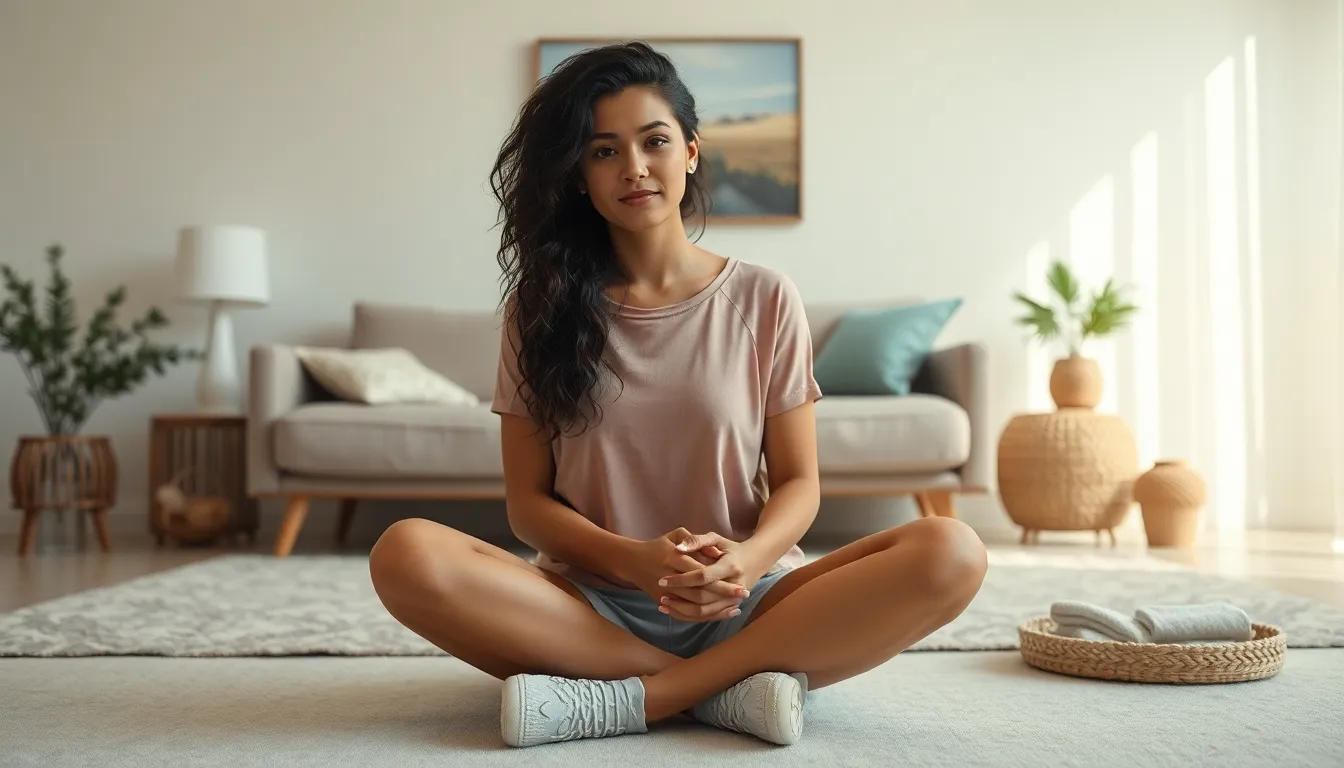In a world overflowing with stuff, minimalism offers a breath of fresh air—or maybe just a little more space on the couch. Imagine living in a home where every item sparks joy instead of cluttering your mind. It’s not just about tossing out that questionable collection of ceramic frogs from the 90s; it’s a lifestyle that champions simplicity and intentionality.
Minimalism isn’t just for hipsters or Instagram influencers. It’s for anyone tired of drowning in possessions and seeking clarity in chaos. By embracing this philosophy, individuals can reclaim their time, energy, and even their sanity. So, if you’re ready to swap your cluttered chaos for a serene sanctuary, dive into the world of minimalism. Who knew less could feel like so much more?
Understanding Minimalism
Minimalism represents a lifestyle choice centered on simplicity and intentionality. Individuals embracing minimalism seek to declutter their lives, focusing on what truly matters.
Definition of Minimalism
Minimalism is the practice of reducing excess in various aspects of life. It encourages individuals to remove unnecessary possessions and distractions, leading to greater clarity and freedom. Decluttering physical spaces often translates into mental clarity. The approach centers on prioritizing quality over quantity, emphasizing meaningful experiences over material goods. People pursue minimalism to find fulfillment in simplicity, allowing them to concentrate on personal values and relationships.
The Philosophy Behind Minimalism
The philosophy of minimalism promotes living intentionally and mindfully. This mindset encourages people to question their consumption habits and societal expectations. Freedom from societal pressures allows individuals to create spaces that reflect their true selves. Minimalism invites a shift towards valuing experiences, relationships, and personal growth over accumulating possessions. By adopting this philosophy, many find increased focus, reduced stress, and enhanced overall well-being. It serves as a foundation for a balanced lifestyle.
Benefits of Minimalism

Embracing minimalism leads to several profound benefits that enhance daily life. Individuals often discover significant improvements in mental clarity and financial freedom.
Mental Clarity
Reduced clutter creates a more focused environment. A clean space fosters a calm mind, allowing for improved concentration on tasks. Individuals frequently report lower levels of stress as external distractions diminish. Organized surroundings promote a clearer thought process, enhancing decision-making capabilities. Furthermore, prioritizing meaningful experiences over material possessions contributes to emotional tranquility. Many practitioners of minimalism experience a sense of liberation and creativity. As thoughts align with personal values, individuals can pursue goals with newfound energy and enthusiasm.
Financial Freedom
Minimalism encourages intentional spending habits. Fewer possessions mean less financial burden, allowing for savings and investments. Individuals often shift their focus from acquiring items to valuing experiences. This transition can lead to reduced debt and a more stable financial outlook. Additionally, minimalists frequently find joy in simple pleasures rather than luxury goods. Prioritizing quality over quantity helps individuals make smart financial decisions. Through mindful purchasing, individuals attain a sense of control over their finances and gain the ability to allocate resources towards meaningful pursuits. Ultimately, minimalism offers a pathway to a wealthier mindset and lifestyle.
Minimalism in Different Aspects
Minimalism influences various areas of life, offering a streamlined approach to home decor and lifestyle choices. Practicing minimalism fosters clarity and intentionality.
Minimalism in Home Decor
Home decor embodies the essence of minimalism through simplicity and functionality. Neutral colors often dominate minimalist spaces, creating a serene atmosphere. Furniture selection focuses on essential pieces that serve multiple purposes, eliminating unnecessary items. Natural light plays a vital role, enhancing openness and warmth. Utilizing negative space allows individuals to appreciate each item, fostering a sense of calm. Decor items emphasize quality and craftsmanship over quantity, allowing personal style to shine without overwhelming the space.
Minimalism in Lifestyle Choices
Lifestyle choices reflect minimalism by promoting intentional actions and mindful consumption. Embracing fewer possessions leads to greater freedom and less stress. Prioritizing experiences over material goods creates lasting memories and fosters stronger relationships. Simplifying routines minimizes distractions, leading to enhanced focus on personal goals. Healthy habits become more achievable as one reduces clutter in both mind and environment. Additionally, making conscious decisions around time and energy fosters a balanced, fulfilling lifestyle.
Challenges of Adopting Minimalism
Adopting minimalism presents various challenges that can hinder its practice. Individuals often face obstacles that require careful navigation.
Emotional Attachments
Emotional attachments to belongings pose a significant challenge. Many develop strong connections to objects, seeing them as extensions of identity or memories. Letting go of these possessions can evoke feelings of loss or guilt. Relinquishing items tied to cherished moments can prove difficult. Recognizing that memories exist independently of physical objects helps some overcome this hurdle. Acceptance of change fosters a healthier mindset toward decluttering. Addressing these emotions openly enables smoother transitions into a minimalist lifestyle.
Societal Pressures
Societal pressures complicate the journey toward minimalism. Cultural norms often equate success with accumulation, shaping perceptions of value and worth. Individuals may feel compelled to conform to these expectations, leading to internal conflict between desires and cultural messages. The influence of social media amplifies this struggle, showcasing curated lifestyles that prioritize excess. Challenging these societal norms requires conscious effort and self-reflection. Redefining personal values fosters resilience against external pressures. Embracing simplicity becomes an empowering choice rather than a daunting task.
Embracing minimalism offers a pathway to a more intentional and fulfilling life. By prioritizing simplicity and quality over quantity, individuals can create environments that foster clarity and peace. This lifestyle encourages mindful consumption and meaningful experiences, leading to improved mental well-being and financial freedom.
While the journey may present challenges such as emotional attachments and societal pressures, redefining personal values can empower individuals to navigate these obstacles. Ultimately, minimalism serves as a transformative approach that enables people to reclaim their time and energy, paving the way for a balanced and enriched existence.
